Find Help
More Items From Ergsy search
-

Men Don't Need to Know about Menopause | NHS 24
Relevance: 100%
-

What is menopause?
Relevance: 73%
-
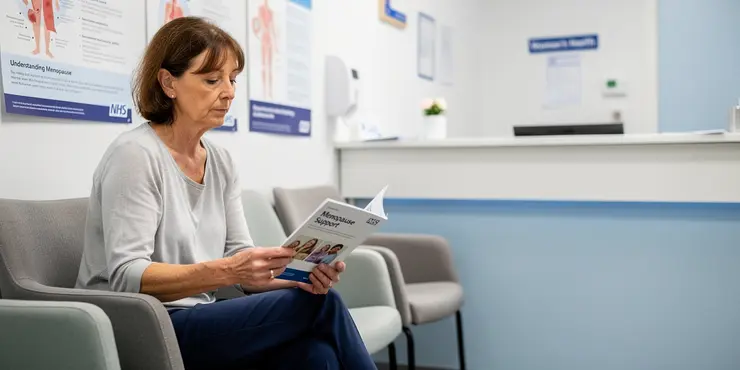
Does the menopause just happen suddenly?
Relevance: 66%
-
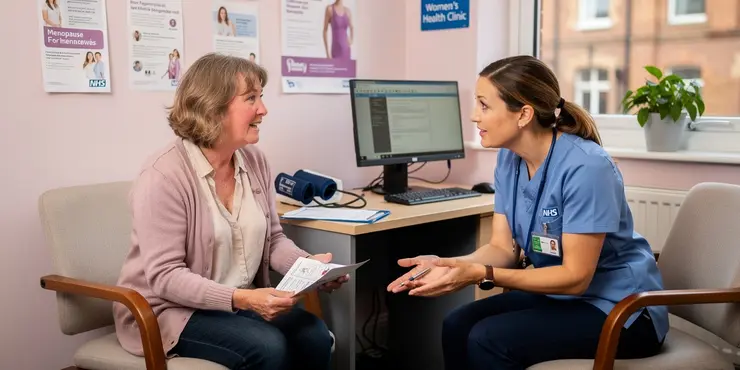
Menopause Myths
Relevance: 66%
-
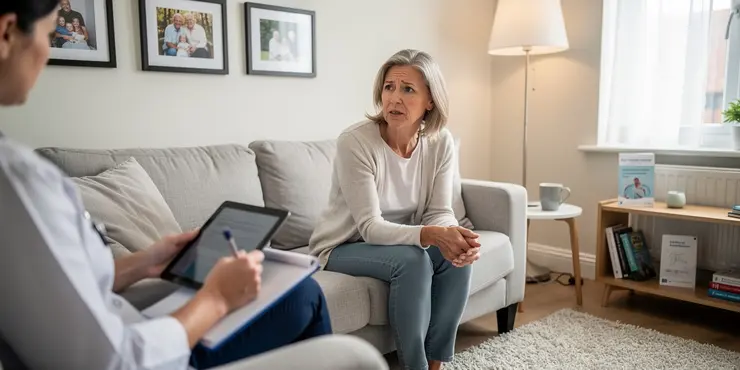
Living with the menopause
Relevance: 66%
-
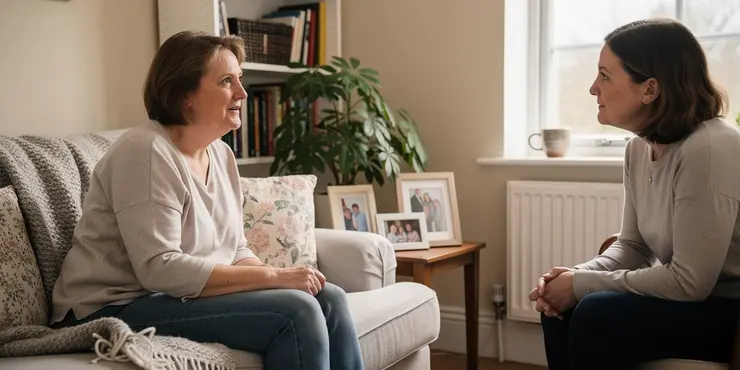
Living with the menopause
Relevance: 66%
-
What treatments are available for menopause masking?
Relevance: 64%
-
What is menopause masking?
Relevance: 64%
-
What is menopause masking?
Relevance: 64%
-
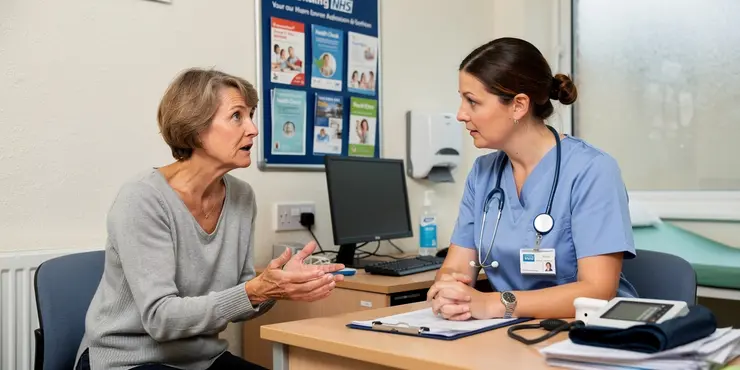
How common is it for women to develop dementia after menopause?
Relevance: 62%
-
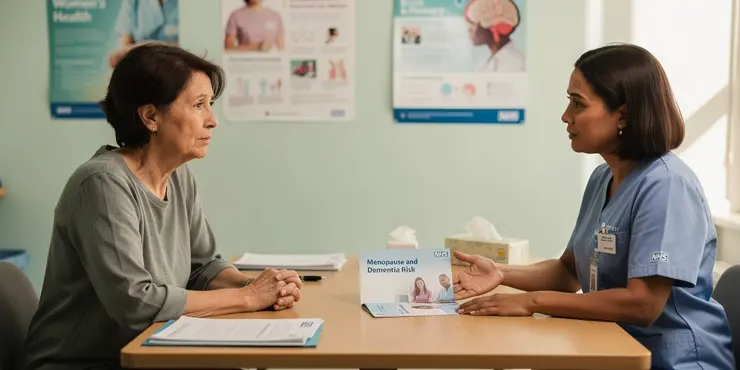
How does menopause potentially affect dementia risk?
Relevance: 62%
-
Is it possible to delay menopause naturally?
Relevance: 61%
-
What is the role of estrogen in menopause?
Relevance: 61%
-
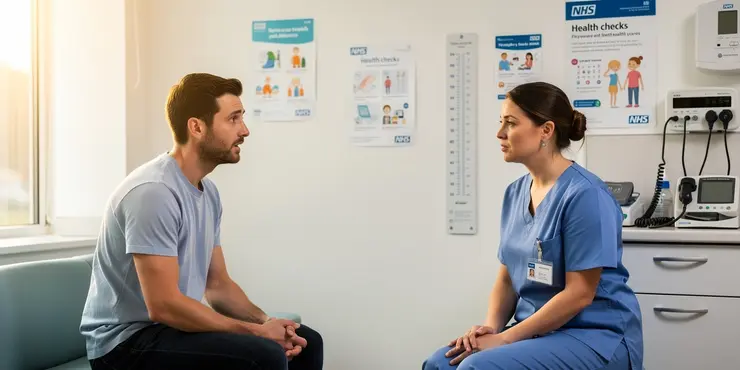
Can men have mammograms?
Relevance: 61%
-
What are common symptoms of menopause?
Relevance: 60%
-
Are there natural remedies for menopause masking?
Relevance: 60%
-
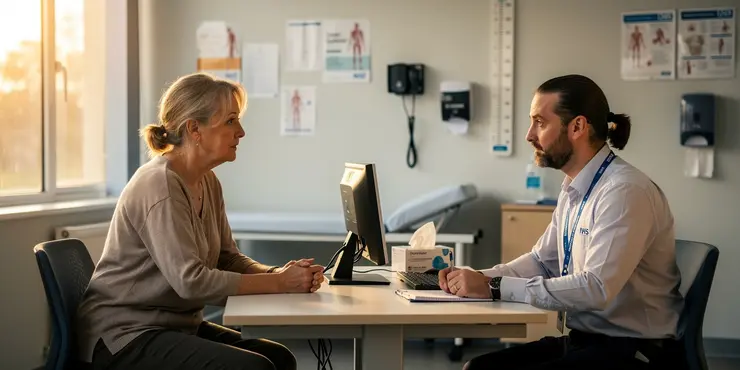
Talking menopause with your GP
Relevance: 59%
-
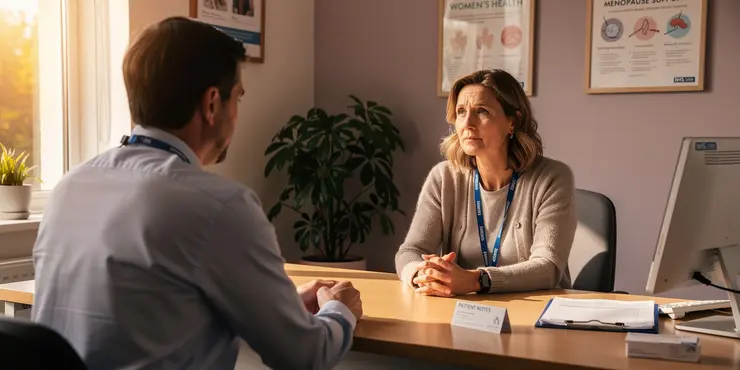
Talking menopause with your GP
Relevance: 59%
-
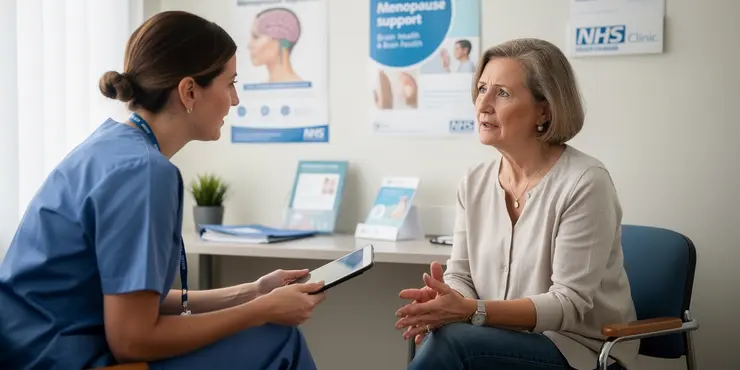
Is menopause linked to loss of brain matter?
Relevance: 59%
-
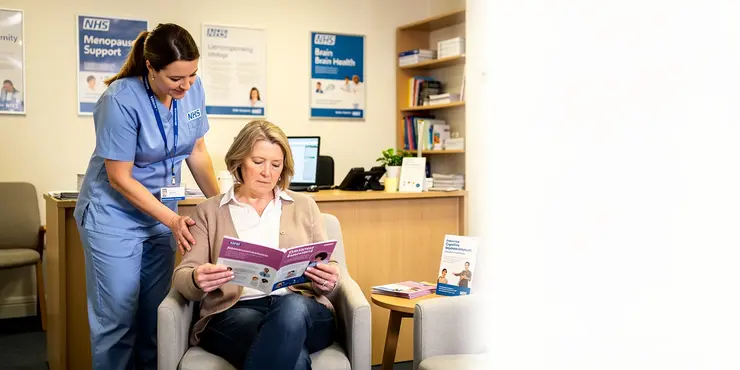
Is there scientific evidence linking menopause to dementia?
Relevance: 59%
-
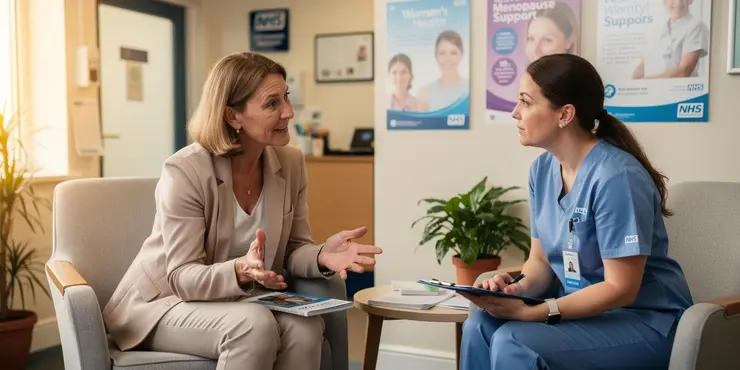
What are the links between menopause and dementia?
Relevance: 59%
-
Are there specific types of dementia linked to menopause?
Relevance: 58%
-
What is the difference between perimenopause and menopause?
Relevance: 58%
-
Can acupuncture help with menopause masking?
Relevance: 58%
-
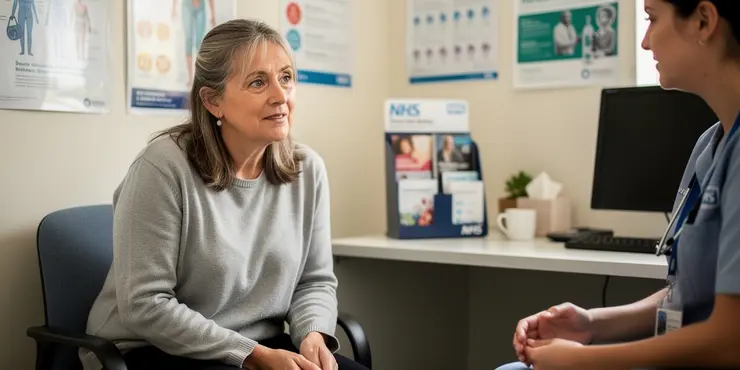
How long does menopause usually go on?
Relevance: 57%
-

How can I find NHS-recommended menopause support groups online?
Relevance: 57%
-
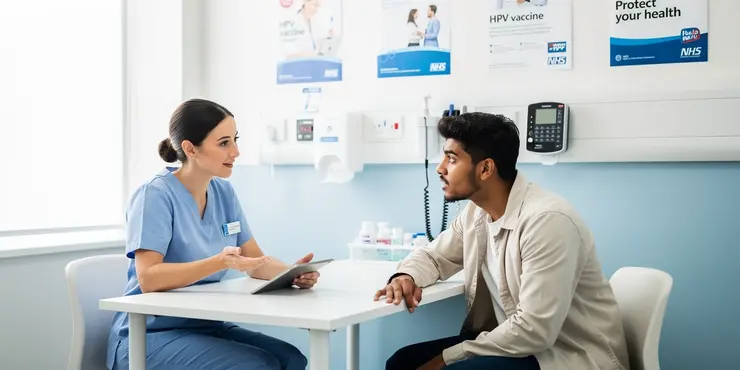
Do men need the HPV vaccine?
Relevance: 57%
-
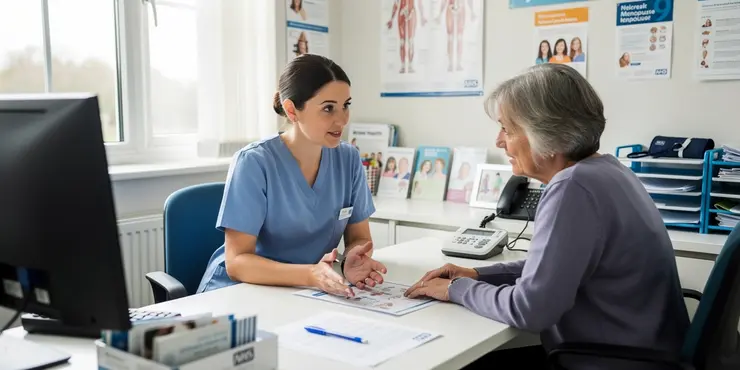
Are there any NHS apps for managing menopause symptoms?
Relevance: 57%
-
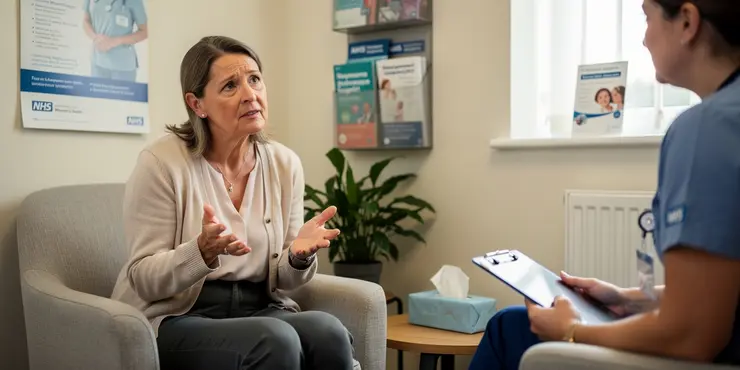
Is the age of menopause onset related to dementia risk?
Relevance: 57%
-
What psychological effects can menopause have?
Relevance: 57%
-

Does the NHS offer an online hospital for menopause?
Relevance: 57%
-
Can menopause affect bone health?
Relevance: 57%
-
How does exercise impact menopause masking?
Relevance: 57%
-
Can stress management aid in menopause masking?
Relevance: 57%
-
Can lifestyle changes help with menopause masking?
Relevance: 57%
-
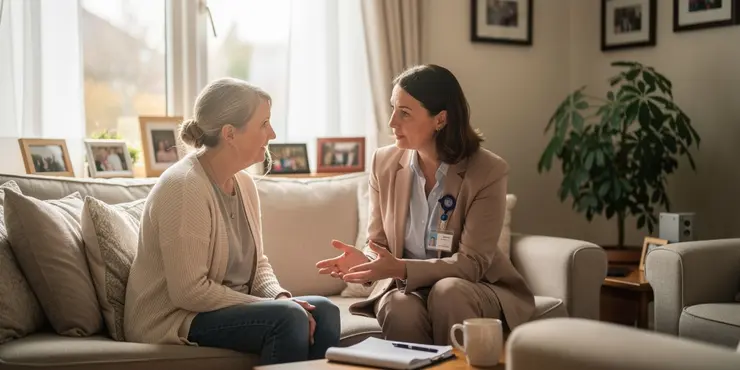
Does the NHS offer an online hospital for menopause?
Relevance: 57%
-
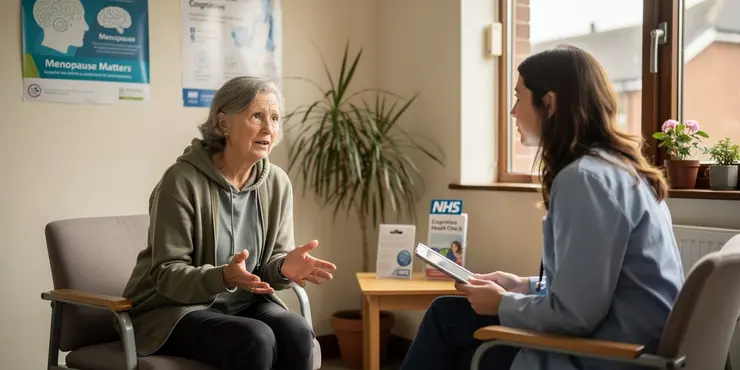
Are there psychological impacts of menopause that affect cognitive health?
Relevance: 57%
-

Does the NHS have an online symptom checker for menopause?
Relevance: 56%
-

Are men at risk of having their drinks spiked?
Relevance: 56%
-

What online resources does the NHS offer for menopause?
Relevance: 56%
Men Don't Need to Know about Menopause | NHS 24
Introduction
Menopause, a natural biological process that marks the end of menstruation in women, often remains misunderstood or disregarded by those who don't directly experience it. However, it is crucial for men to understand this transition, particularly in the United Kingdom where awareness and empathy can contribute to more supportive relationships and environments.
Understanding Menopause
Menopause typically occurs between ages 45 and 55 and comes with various physical and emotional symptoms, including hot flashes, night sweats, mood swings, and fatigue. These symptoms can significantly impact a woman's daily life and well-being. By understanding these changes, men can better support partners, family members, and colleagues going through this stage.
Supporting Loved Ones
Supportive behaviors from men can make a significant difference. Simple actions such as being patient, offering help with daily tasks, and communicating openly can ease the burden for women experiencing menopause. In the workplace, recognizing the impact of menopause can foster a more inclusive and empathetic environment.
Promoting Health and Well-being
Men should also understand that lifestyle choices play a critical role in managing menopause symptoms. Encouraging healthy habits such as balanced diets, regular exercise, and stress management can benefit both partners. Knowledge about menopause also helps in seeking appropriate medical advice and treatments when necessary.
Conclusion
Men have a significant role in understanding and supporting the experiences of menopause. Increased awareness and empathy not only strengthen personal relationships but also contribute to a more understanding society. In the UK, where NHS 24 provides valuable resources, men can educate themselves to help ease the journey for women during this crucial phase of life.
Men Should Know about Menopause | NHS 24
Introduction
Menopause is when a woman's period stops. It happens naturally. Many people do not know much about it. It is important for men to learn about menopause. This is because understanding helps men support women better. It can also make relationships and workplaces more caring.
Understanding Menopause
Menopause usually happens between ages 45 and 55. Women may feel hot, sweat at night, have mood changes, and get tired. These things can make life hard for women. When men learn about menopause, they can help women in their lives like partners, family, and workmates.
Supporting Loved Ones
Men can help women by being kind and offering help. Doing things together and talking can make it easier for women going through menopause. At work, understanding menopause helps everyone feel included and cared for.
Promoting Health and Well-being
Healthy habits can help with menopause. Eating well, exercising, and relaxing are good for women and their partners. Knowing about menopause means men can also help find good health advice and support.
Conclusion
Men play an important role in understanding menopause. Learning more helps them support women. In the UK, NHS 24 offers useful information. Knowledge helps men make life easier for women during menopause.
Frequently Asked Questions
What is menopause?
Menopause is a natural biological process that marks the end of a woman's menstrual cycles and reproductive years. It typically occurs between the ages of 45 and 55.
What are the common symptoms of menopause?
Common symptoms include hot flushes, night sweats, mood swings, vaginal dryness, and sleep disturbances.
How long do menopausal symptoms last?
Menopausal symptoms can last for several years, with the duration varying from woman to woman. Symptoms typically lessen over time.
Is there a way to confirm menopause?
Menopause is usually confirmed when a woman has not had a period for 12 consecutive months. Blood tests can also measure hormone levels to provide additional confirmation.
Can menopause affect mental health?
Yes, menopause can affect mental health, leading to symptoms like mood swings, anxiety, and depression.
What treatments are available for menopausal symptoms?
Treatments include hormone replacement therapy (HRT), lifestyle changes, and alternative therapies such as herbal supplements and acupuncture.
Is hormone replacement therapy (HRT) safe?
HRT can be safe and effective for many women, but it’s important to discuss the risks and benefits with a healthcare provider.
Can menopause impact sexual health?
Yes, menopause can lead to vaginal dryness, reduced libido, and discomfort during sexual activity. Lubricants and oestrogen treatments can help.
What lifestyle changes can help manage menopausal symptoms?
Healthy eating, regular exercise, staying hydrated, and managing stress can help alleviate some menopausal symptoms.
Should I continue using contraception during menopause?
Yes, you should continue using contraception until you're postmenopausal, meaning you’ve not had a period for 12 months.
What is perimenopause?
Perimenopause is the transitional period before menopause when a woman's hormone levels begin to change. This phase can last several years.
Can men understand or support women going through menopause?
Yes, men can play a supportive role by educating themselves about menopause, being empathetic, and providing emotional support.
Does diet play a role in managing menopause symptoms?
Yes, a balanced diet rich in fruits, vegetables, and whole grains can help manage symptoms. Foods high in calcium and vitamin D are particularly beneficial.
Are there any long-term health risks associated with menopause?
Post-menopausal women are at increased risk for osteoporosis and cardiovascular disease, so regular check-ups and a healthy lifestyle are important.
Is it normal to experience weight gain during menopause?
Yes, many women experience weight gain during menopause due to hormonal changes, decreased muscle mass, and a slower metabolism.
What is menopause?
Menopause is when a woman's body stops having periods. It is a normal part of getting older. It means she might not be able to have babies anymore.
Periods are when blood comes out from inside the body every month. Menopause usually happens between ages 45 and 55.
If you want to learn more about menopause, talking to a doctor is helpful.
Using pictures or videos can also help understand menopause better.
Menopause is a natural change in a woman's body. It means she will stop having periods and can't have babies anymore. This usually happens when she is between 45 and 55 years old.
What are the common signs of menopause?
Menopause is when women stop having periods. This is a normal part of aging. Here are some common signs of menopause:
- Hot flashes: Feeling very warm suddenly.
- Night sweats: Sweating a lot while sleeping.
- Trouble sleeping: Hard to fall or stay asleep.
- Mood changes: Feeling happy, sad, or upset easily.
- Memory problems: Finding it hard to remember things.
- Dry skin: Skin feels rough or itchy.
If you're finding it hard to understand, you can try using other tools. Some people find it helpful to use apps that read text out loud or highlight words as you read.
Some things people might feel are:
- Feeling very hot suddenly (hot flushes)
- Getting sweaty at night (night sweats)
- Feeling happy or sad quickly (mood swings)
- Feeling dry in private areas (vaginal dryness)
- Finding it hard to sleep well (sleep disturbances)
Try using simple apps to help you remember things or talk to someone you trust if you need support.
How long do menopause symptoms last?
Menopause is when women stop having periods. This is a normal part of getting older.
Some women may feel different during this time. Here are some things they might feel:
- Hot and sweaty (called hot flashes)
- Mood changes (feeling happy, sad, or grumpy)
- Trouble sleeping
- Feeling tired
These feelings can last for different amounts of time. Some women feel them for a few months. Other women might feel them for several years.
If someone you know is going through menopause, there are ways to help:
- Talk to a doctor for advice and support.
- Eating healthy food and exercise can help.
- Relaxation exercises like deep breathing can make them feel better.
Remember, it's okay to ask for help and talk about how you feel.
When women go through menopause, they can feel different for a few years. These feelings can be different for each woman. Over time, these feelings usually get better.
How can you know if menopause has started?
We know a woman is in menopause when she hasn't had a period for 12 months in a row. A blood test can check hormone levels to help confirm this.
Can menopause change how we feel and think?
Menopause is a time when a woman's body changes. It can also change how she feels and thinks.
Some women feel sad, worried, or tired during menopause. This is normal.
Talking to a doctor or a friend can help. Doing things that make you happy, like walking or reading, can also help.
Yes, menopause can change how we feel. It can make us have mood swings and feel worried or sad.
What can help with menopause symptoms?
Treatments can help. You can try medicine called hormone replacement therapy (HRT). You can also change how you live, like eating better and moving more. Some people use other ways to feel better, like taking herb pills or having acupuncture.
Is it safe to take hormone replacement therapy (HRT)?
Hormone replacement therapy (also called HRT) is a treatment. It helps people who have low hormones.
HRT can help with things like hot flashes, night sweats, and mood changes. Some people feel better when they take HRT.
But like all medicines, HRT can have side effects. It's important to talk to a doctor about these. They can help you decide what is best for you.
Here are some things that can help:
- Ask questions: Write down questions you have before going to the doctor.
- Take notes: Write down what the doctor says, so you can remember later.
- Bring a friend: A friend or family member can help listen and remember information.
HRT can help many women and can be safe. It is important to talk to a doctor about what is good and bad about using HRT.
Can menopause change how you feel about sex?
Yes, menopause can change how you feel about sex.
During menopause, your body makes less of certain hormones.
This can cause changes that might make sex feel different.
If you're worried, talk to a doctor. They can help you feel better.
Using more lotion or jelly can also help if it feels dry.
Yes, menopause can make your vagina dry. It can also make you want to have sex less and can make sex feel uncomfortable. Using special gels called lubricants can help. There are also treatments with a hormone called oestrogen that can help too. You can talk to your doctor about these options.
How can changing your daily habits help with menopause?
To feel better during menopause, try eating healthy foods, doing exercise, drinking lots of water, and finding ways to relax.
Should I keep using birth control during menopause?
Menopause is when a woman's periods stop. It usually happens between 45 and 55 years old. But you can still get pregnant until menopause is finished.
If you do not want to have a baby, it is a good idea to keep using birth control. You can stop using it when a doctor tells you menopause is over, and it's safe to stop.
If reading is hard, you can:
- Ask someone you trust for help.
- Use apps or tools that read text out loud.
- Break the text into smaller parts.
Yes, you need to keep using birth control until you are postmenopausal. This means you have not had a period for a whole year.
Here’s a tip: You can use a calendar to mark the days of your period. This will help you keep track of when they stop.
There are apps on phones that can help remind you about your periods too!
What is perimenopause?
Perimenopause is the time when a woman's body starts to change before menopause. During this time, the body makes less of some hormones. This can cause periods to be different.
Here are some ways to help:
- Talk to a doctor or nurse about what you feel.
- Use a calendar to mark your period days.
- Write down how you feel each day to see patterns.
Remember, it is okay to ask for help!
Perimenopause is a time before menopause. During this time, a woman's body starts to change. Her hormones are different. This can happen for many years.
Here are some ways to help understand: - Use a calendar to track changes. - Talk to a doctor if you have questions. - Read simple books about it.Can Men Help Women with Menopause?
Menopause is a time when women stop having their periods. It can make women feel hot, tired, or sad.
Men can try to be kind and listen. They can learn more about menopause to understand better.
Using simple words and being patient can help.
Some things that may help are:
- Talking and sharing feelings.
- Being a good listener.
- Reading books or watching videos about menopause.
Yes, men can help. They can learn about menopause, be kind, and give support to people going through it.
Can the food we eat help with menopause?
When women get older, they go through a change called menopause. It can make them feel hot, tired, or grumpy. Eating the right foods might help them feel better.
Here are some tips:
- Eat lots of fruits and veggies. They are good for you!
- Try to eat less sugar and junk food.
- Drink plenty of water to stay healthy.
- Some people find that soy milk or tofu helps.
If you want to learn more, you can talk to a doctor or use apps that help track food and feelings, like MyFitnessPal.
Yes, eating the right foods can help you feel better. It's good to eat lots of fruits, vegetables, and whole grains. Foods that have calcium and vitamin D are especially helpful.
Can menopause cause health problems later?
After women stop having periods, they might get weak bones and heart problems more easily. So, it's important to visit the doctor often and live healthily.
Is it normal to gain weight during menopause?
Yes, lots of women gain weight when they go through menopause. This happens because hormones change, muscles get weaker, and their bodies use energy more slowly.
If you find it hard to read, there are tools that can help. You can use text-to-speech apps to listen to the words. Also, reading with a helper or using bigger text might make it easier.
Useful Links
This website offers general information and is not a substitute for professional advice.
Always seek guidance from qualified professionals.
If you have any medical concerns or need urgent help, contact a healthcare professional or emergency services immediately.
Some of this content was generated with AI assistance. We’ve done our best to keep it accurate, helpful, and human-friendly.
- Ergsy carfully checks the information in the videos we provide here.
- Videos shown by Youtube after a video has completed, have NOT been reviewed by ERGSY.
- To view, click the arrow in centre of video.
- Most of the videos you find here will have subtitles and/or closed captions available.
- You may need to turn these on, and choose your preferred language.
- Go to the video you'd like to watch.
- If closed captions (CC) are available, settings will be visible on the bottom right of the video player.
- To turn on Captions, click settings .
- To turn off Captions, click settings again.
More Items From Ergsy search
-

Men Don't Need to Know about Menopause | NHS 24
Relevance: 100%
-

What is menopause?
Relevance: 73%
-

Does the menopause just happen suddenly?
Relevance: 66%
-

Menopause Myths
Relevance: 66%
-

Living with the menopause
Relevance: 66%
-

Living with the menopause
Relevance: 66%
-
What treatments are available for menopause masking?
Relevance: 64%
-
What is menopause masking?
Relevance: 64%
-
What is menopause masking?
Relevance: 64%
-

How common is it for women to develop dementia after menopause?
Relevance: 62%
-

How does menopause potentially affect dementia risk?
Relevance: 62%
-
Is it possible to delay menopause naturally?
Relevance: 61%
-
What is the role of estrogen in menopause?
Relevance: 61%
-

Can men have mammograms?
Relevance: 61%
-
What are common symptoms of menopause?
Relevance: 60%
-
Are there natural remedies for menopause masking?
Relevance: 60%
-

Talking menopause with your GP
Relevance: 59%
-

Talking menopause with your GP
Relevance: 59%
-

Is menopause linked to loss of brain matter?
Relevance: 59%
-

Is there scientific evidence linking menopause to dementia?
Relevance: 59%
-

What are the links between menopause and dementia?
Relevance: 59%
-
Are there specific types of dementia linked to menopause?
Relevance: 58%
-
What is the difference between perimenopause and menopause?
Relevance: 58%
-
Can acupuncture help with menopause masking?
Relevance: 58%
-

How long does menopause usually go on?
Relevance: 57%
-

How can I find NHS-recommended menopause support groups online?
Relevance: 57%
-

Do men need the HPV vaccine?
Relevance: 57%
-

Are there any NHS apps for managing menopause symptoms?
Relevance: 57%
-

Is the age of menopause onset related to dementia risk?
Relevance: 57%
-
What psychological effects can menopause have?
Relevance: 57%
-

Does the NHS offer an online hospital for menopause?
Relevance: 57%
-
Can menopause affect bone health?
Relevance: 57%
-
How does exercise impact menopause masking?
Relevance: 57%
-
Can stress management aid in menopause masking?
Relevance: 57%
-
Can lifestyle changes help with menopause masking?
Relevance: 57%
-

Does the NHS offer an online hospital for menopause?
Relevance: 57%
-

Are there psychological impacts of menopause that affect cognitive health?
Relevance: 57%
-

Does the NHS have an online symptom checker for menopause?
Relevance: 56%
-

Are men at risk of having their drinks spiked?
Relevance: 56%
-

What online resources does the NHS offer for menopause?
Relevance: 56%


